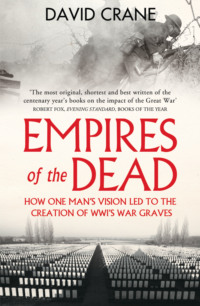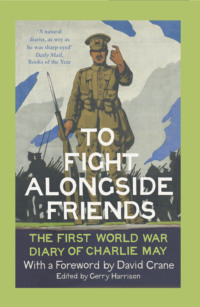
Полная версия
Men of War: The Changing Face of Heroism in the 19th Century Navy
The remarkable thing about all this is not how like every other embittered philhellene Hastings sounds in his journal, but how unlike them he acted. For most of his fellow travellers the shock of disillusionment was rapidly terminal, but it only took the slightest sniff of action or the sight of a fortress still in Turkish hands to bring Hastings back to the colours, as enthusiastic as ever.
If he had foreseen the role Navarino would play in the revolution, he might have paid it even more attention than he did, but it was above all Nauplia’s Palamidi that exercised his mind. On his return from his travels he had gone back to his old base on Hydra, and on 9 November he was joined there by another shadowy foreign volunteer called d’André, who had sought him out with a proposition that between them they should equip and lead a party of a hundred Greeks to storm the Palamidi.
For all his doubts about d’André, it was a proposition that left Hastings feeling not ‘a little ébloui’ – dazzled – and that same day he purchased fifty muskets at forty-eight piastres each and embarked with his new colleague for the Gulf of Argos. At the Mills d’André wrote to a dubious species of military ‘pimp’ in the business of troop procurement, and by the next day Hastings had his company to command – or at least forty-five of the fifty soldiers he had been promised, which was all that a ‘certain Mr Testat’ could produce at such notice. ‘I armed them,’ he recorded, with an optimism that he could still, bafflingly, bring to his military dealings with the Greeks, ‘causing to be read to them at the same time some articles by which they were informed of the conditions upon which I delivered them the arms.’
Although the government at Tripolis was prepared to grant Hastings a commission that cost them nothing, they were not ready to feed his men, and while d’André headed with their company for the Dervenakia, Hastings returned to Hydra for more funds. ‘I visited the Minister of War,’ he wrote indignantly on 30 November, ‘who did not receive me too well considering the expense I had been at – he seems to consider the arming of 50 men as something not worth the trouble of undertaking & urged me to form a corps of 300 – I replied I would undertake it if he would furnish me with the money – as to the money he said I could easily raise that sum.’
In one respect, at least, the Minister was right, because for all the good Greece or Hastings would get out of his investment he might have saved himself the bother. The next day he set off to the north to rejoin his troops, who were guarding the passes near Corinth, and found Testat in a state of permanent drunkenness, his second-in-command little better, and his unfed soldiers – ‘one & all’ – in such a state of mutinous discontent that only Hastings’s arrival came between d’André and their bayonets.
The real problem, as ever with Greek irregulars, was not fear of the Turks but the lure of plunder, and with rumours of the fall of Nauplia reaching them with every messenger Hastings had no hope of keeping them at their post. He managed to buy himself some time by dismissing d’André, but when news at last reached them that the Palamidi had surrendered without a shot being fired, there was nothing he could do but join in the general migration south and look for a chance to regain his muskets. ‘I made the soldiers pile their arms,’ he wrote on 20 December, grateful that he did not have ‘to resort to firing measures’ against his own men, ‘& then applied to Colocotroni who sent an officer who brought the arms & placed them in the room where Colocotroni held his council … The measure was quite unexpected by the soldiers & surprised them so completely that they did not even murmur.’
The absurd and the horrific were never far apart from each other in this conflict, however, and Hastings was determined to get out of Nauplia before the town fell to an expectant and mutinous army. Through the last weeks of the siege the garrison had been too weak even to climb up to the fortress, and as the Greek soldiers massed at the gates, determined to beat their own captains to the plunder, the Muslim sick and dying could only await their fate, eking out their final hours in the hopeless search among the unburied corpses of their dead children for a last, filthy scrap of food.
There is no doubt either – in spite of all the promises of safe-passage – that there would have been a repetition of Tripolis, Navarino, Athens and Monemvassia had not a British frigate, HMS Cambrian under the command of Captain Gawen Hamilton, sailed the next day into the Gulf of Nauplia. In these early years of the war there was a strong anti-English feeling in the Greek government, but even the most rabid anglophobe knew that in Hamilton they had a friend they could trust and an arbiter they could not ignore.
It is difficult, in fact, to believe that anyone else in the Aegean would have had the moral authority to impose his will in the way that Hamilton did at the surrender of Nauplia. ‘He held a conference with Kolokotrones and the Moreot chieftains,’ Finlay wrote,
whose Russian prejudices induced them to view the interference of an English officer with great jealousy. He was obliged to tell them in strong language, that if, on this occasion they failed to take effectual measures for the honourable execution of the capitulation, they would render the Greek name despicable in civilized Europe, and perhaps ruin the cause of Greece. The chiefs respected Hamilton’s character; the wild soldiers admired his martial bearing and the frankness with which he spoke the whole truth. He took advantage of the feeling he had created in his favour to act with energy. He insisted on the Greek government immediately chartering vessels to embark the Turks, and to facilitate their departure he took five hundred on board the Cambrian.
The news of the Cambrian reached Tripolis on 30 December, and that night Hastings recorded it in his journal: ‘We were informed that the Greeks had entered Nauplia, & an English frigate of war was in the roads … The Greeks of Tripolitza were in great choler agst the frigate for having insisted upon the immediate embarkation of the Turks & having declared that he would accompany them to their destination.’
It must have been a strange moment for Hastings, a poignant mix of pride, regret and alienation that the ‘choler’ of his new countrymen can only have heightened. There was a twist, too, awaiting him when on 1 January 1823 he made the long, bitter march through more than a foot of thawing snow to Nauplia and found there his old first lieutenant from the Orlando, Edward Scott. His journal does no more than note their ‘great surprise’ at the meeting, but the next day he went on board the Cambrian, the first time he can have been in an English man-of-war since his return from Port Royal more than four years earlier. ‘I went on board and saw Scott,’ he noted. ‘Much difference of opinion existed among the Greeks on the conduct of the English Capt but I feel convinced that he saved the lives of the Turks by his prompt measures & that he did a great service to Greece.’
It had been an unsettling way to see out an old year that had brought nothing and see in a new that promised less. There would come a time when Captain Hamilton would willingly have given a thousand pounds to be in Hastings’s shoes, but as the Cambrian, with its five hundred emaciated Turks, weighed for Smyrna, Hastings could only reflect on how utterly alone he was. He had no Greek friends, and a chance meeting with a party of Germans – some new arrivals, some survivors of the original Philhellene Battalion desperate to escape a country they had grown to hate – was enough to remind him how little he belonged to any philhellene world either. He had, though, thrown in his lot with his adopted country, and he was no quitter. ‘I now resolved to go to Hydra,’ he wrote the day after the Cambrian sailed, and two days later, on 7 January, nine months after his first arrival, he was back among the scenes of his first disappointment.
VII
The uncertainty that surrounded Hastings’s life at the beginning of 1823 was no more than a reflection of the state of Greece itself as it drifted towards the first of its civil wars. His courage in the Themistocles the previous summer had belatedly won him a Hydriot reputation of sorts, but as the stories emerged from the Morea of Colocotrones’s growing power and the endless rivalries – government against captain, captain against captain, captain against primate – an island exile seemed an indulgence that Hastings could not afford if he was ever going to get the chance to fight again.
He had been invited by Emmanuel Tombazi, one of the leading Hydriot captains, to join him on an expedition to Crete, but even that was dependent on decisions taken elsewhere, and in the middle of February Hastings returned to the Morea to be closer to the centre of power. Before he could sail an accident with a pistol almost cost him his head – and did cost him six teeth broken and two knocked out – but on the fourteenth he landed again at Nauplia, setting up house in a half-ruined shelter in the old town while he waited for government and island deputies to arrive for the second National Assembly.
With Colocotrones and his followers quitting Nauplia for Tripolis as soon as the deputies arrived, it was a miracle the Assembly met at all, but by mid-April the warring factions had at last buried their differences sufficiently to converge on Aspros on the east coast of the Morea. On the twenty-fifth of the month Hastings set off after them to fight his corner, and for the next week pitched his tent like some demented Viola in front of the house of the Cretan island’s deputies, ‘halloo-ing’ his cause and credentials until he finally got the appointment he was after as ‘Chef de l’état major de Artillerie’ (sic) on the forthcoming expedition to Crete.
Hastings might have known from the spurious grandeur of his title that he was in for another disappointment, but before the end of May he had sailed along with 1,500 troops and two Germans he had taken into his service at Hydra. On 3 June the expedition disembarked near the citadel of Kisamos on Crete, and within days he was back into the familiar and desultory rhythms of Greek campaign life, with weeks of frustration and inactivity punctuated by sporadic fits of violence and treachery.
The Turkish garrison of Kisamos – ravaged by plague – succumbed without either a fight or the usual reprisals, but from then on it was the old story of confusion, inter-island dissensions, bad faith, broken paroles, massacres, ‘atrocious treason’ and ‘cowardice’. ‘It is plain that they will not fight in a position in which there is a possibility of their being killed,’ Hastings was soon complaining, after his Greek soldiers had refused to sight his batteries in range of Turkish guns, ‘and I cannot persuade them that amongst all the modern inventions there is no secret of fighting without danger.’
The longer he fought with the Greeks, in fact, the more clearly he saw the virtues of the Turks – ‘a courageous and honourable people’ – though one partial exception he would always allow was in favour of the Cretan soldier. ‘A German arrived from Kiramos,’ he noted in his journal:
he says that the quality most esteemed in a soldier here is to run fast. When the gallant Ballasteros* was abandoned by his soldiers & fell into the hands of the Turks who put him to death in the most cruel manner the Greeks remarked that it was no loss as he was worth nothing as a soldier [as] he could not run fast – I must however acknowledge that I [had] a very different feeling at Cadeno [on Crete]. As there was no cannon I took the musquet of my servant & advanced into the valley to a short pistol shot from the pyrgos – the Greeks then used all their endeavours to persuade me to retire saying it was not my business to get killed & that I did not understand their manner of making war & it would hurt them very much to lose me citing with much regret the fate of Balleste – this I must acknowledge gave me a favourable opinion of the Cretans – fortunately for me Tombazi recalled me from this position & thus I was (perhaps) saved from Balleste’s fate.
Hastings could have had no idea of it at the time but it was the last occasion on which he would fight alongside Greek soldiers on land. In the early days of the campaign fever had been rampant in the army, and by 10 August he had joined a mounting sick list, ‘suffering very much’ and the next day was still worse. ‘During the night I was stung by something in my handkerchief,’ he wrote, ‘and on the light being brought I found a scorpion in my handkerchief. The pain tho’ very great lasts only 5 or 6 hours.’
It would be another five weeks before Hastings was strong enough to move, and by that time he would have been grateful for any excuse to quit Crete with life and honour intact. In the early part of September a letter from Edward Scott had warned him of an Egyptian army heading for the Morea, but even before that – before the expedition had even sailed, in fact – a chance meeting with the indefatigable Irish philhellene and serial activist Edward Blaquiere, travelling in Greece on behalf of the newly formed London Greek Committee, had raised possibilities that made the prospect of a foot soldier’s death in a useless war a criminal abrogation of all Hastings’s headiest ambitions.
One of the most puzzling and ill-explained aspects of European philhellenism in the first days of the revolution had been the comparative indifference of Britain to affairs in Greece. In the historiography of the war there have been any number of reasons advanced for this coolness, but whether the answer was domestic politics, Castlereagh or simply some post-Napoleonic species of ‘compassion fatigue’, the truth remains that for all the pamphlets, speeches and moral indignation, no more than a dozen British philhellenes had actually gone out to fight for Greece by the end of 1822.
There had never been any shortage of sympathisers, though, and at the beginning of March 1823 an inaugural meeting of the new London Greek Committee was held at the Crown and Anchor in London’s Strand. The moving spirits behind its formation were the usual suspects associated with the liberal causes of the day, and their manifesto lacked nothing of the woolly sentiment that characterised the earliest ‘friends of humanity, civilization, and religion’. It was time to redress Britain’s record, it announced, and ‘time … to make a public appeal … in the name of Greece. It is in behalf of a country associated with every sacred and sublime recollection: – it is for a people formerly free and enlightened, but long retained by foreign despots in the chains of ignorance and barbarism!’
If this could just as easily have come from Boston or Berne as London, there were forces at work within the Committee that potentially distinguished it from its European or American equivalents. At the core of the small active membership was a group of skilled and practised politicians, and as Britain’s foreign policy under Castlereagh’s successor, George Canning, began to thaw towards Greek aspirations, the Committee found itself and its cause in an unlikely – if undisclosed – harmony with British national interests.
Without the tacit connivance of the authorities the London Committee could have done little, but in the short term of even greater importance to Greece was the potential access to the London money markets at a time when a drop in interest on government bonds was making foreign loans an attractive proposition. In its early days the Committee’s attempts to raise funds from voluntary donations had been modest at best, but by 1823 a heady mix of idle money, speculative greed and philhellenic high-mindedness had conjured up dreams of a Greek gold bonanza on a scale to dwarf anything that had gone before.
With the future colonial governor John Bowring, the radical MP Joseph Hume and the politician-money man Edward Ellice all deeply involved, there was no shortage of financial acumen available to the Committee, but what was required was a ‘name’, and for that only one would do. From the first founding of the Committee its most famous member had been the exiled Byron, and in a spectacular propaganda coup Blaquiere had broken off his journey to Greece at Pisa in order to persuade him to take on the leadership of the cause his verse had done so much to popularise.
It did not matter that there was not a single original idea in that verse; it did not matter that the exiled poet would as soon have gone to Spain or South America; it did not matter that he was a faddish and overweight thirty-six; or that it would take him another five months to get even as far as Cephalonia: it was the Byron name that the Committee had been after, and Hastings’s reaction showed how well they had gauged its effect. It would be hard to imagine anyone better equipped by birth or temperament to resist its lure, but from the day Hastings met Blaquiere the thought of Byron haunted his imagination, easing the frustrations and miseries of the Cretan campaign with visions of a role in the war and a strategy for winning it that suddenly seemed something more than dreams.
A ‘violent and dangerous’ relapse on his return to Hydra from Crete left it looking unlikely that Hastings would live long enough to see out the week, never mind to see Byron, but he had already prepared his brief. ‘Lord Byron’s companions Hamilton Brown & Mr Trelawny arrived & called on me,’ he noted in his journal on 11 October, after a meeting with the two ‘secretaries’ Byron had sent on ahead of him to report back from the ‘Seat of War’. ‘I gave Mr Brown my letter for Ld Byron containing my views on Greece & he engaged to forward it safely.’
Hastings’s letter had had a long and hard birth – draft after draft, heavily scored and annotated, survive among his papers – but the result is the most impressive and clear-sighted strategic document to emerge from the revolution. Behind it lies not just eighteen months’ experience of Greece, but fifteen years’ service in a navy whose strong empirical problem-solving tradition equipped him to move from the large picture to the detail with a persuasive authority.
‘Firstly,’ he wrote to Byron – having duly larded his arguments with the appropriate compliments to the ‘First Genius of the Age’, ‘I lay down as an axiom that Greece cannot obtain any decisive advantage over the Turks without a decided maritime superiority; for it is necessary to prevent them from relieving their fortresses and supplying their armies by sea.’
The only weapon against Turkish fortresses that the Greeks had, Hastings argued, was famine, and without it they would have achieved nothing. In those outposts where the Turks could resupply their garrisons – Patras, Modon, Coron, Negropont – the Greeks had been powerless, and in a terrain that made movement and supply difficult, an army without artillery, engineers or the finance to sustain itself in the field for any length of time was never going to be the answer.
If this seems self-evident now, it did not then – any number of British or European officers thought the war could be won on land – but Hastings had not finished there. ‘The localities of the countries are also such,’ he went on presciently, ‘and the difficulties of moving troops so great, that, without the aid of a fleet, all the efforts of an invading army would prove fruitless. But on the contrary, were an invading army followed by a fleet, I fear that all the efforts of the Greeks to oppose it would be ineffectual. The question stands thus, Has the Greek fleet hitherto prevented the Turks from supplying their fortresses, and is it likely to succeed in preventing them?’
The answer to both questions was ‘no’, and Hastings was one of the few to see that the comparative calm of 1823 had more to do with other pressures on the Ottoman Empire and the disastrous fire in her main arsenal at Tophana in March that year than with any real security. ‘Is it likely that the Greek marine will improve, or that the Turkish will retrograde?’ he asked, remembering, perhaps, that austere, relentless and unforgiving figure he had glimpsed from the deck of the Sea Horse thirteen years earlier.
The contrary is to be feared. We have seen the Greek fleet diminish in numbers every year since the commencement of the war, while that of the Turks has undeniably improved, from the experience they have gained in each campaign … Is the Greek fleet likely to become more formidable? On the contrary, the sails, riggings and hulls are all going out of repair; and in two years time thirty sail could hardly be sent to sea without an expense which the Greeks could not probably incur.
With the Ottoman fleet again at sea, and Ibrahim Pasha’s Egyptians subduing Crete before turning their attention to the Morea, there was an unarguable force to Hastings’s argument. But he also had an answer. ‘We now come to the question, How can the Greeks obtain a decisive superiority over the Turks at sea?’ he continued.
I reply, By a steam-vessel armed as I shall describe … It would be necessary to build or purchase the vessel in England, and send her out to complete. She should be from 150 to 200 tons burden, of a construction sufficiently strong to bear two long 32-pounders, one forward and one aft, and two 68-pounder guns of seven inches bore, one on each side. The weight of shot appears to me of the greatest importance, for I think I can prove that half a dozen shot or shells of these calibres, and employed as I propose, would more than suffice to destroy the largest ship. In this case it is not the number of projectiles, but their nature and proper application that is required.
Although it would be another two years, and endless disappointments, refinements and changes, before Hastings got his steamship, here in essence is the vessel that made his name. Over the past generation there had been various experiments on both sides of the Atlantic with the military application of steam, but if Hastings could not claim absolute priority – Frederick Marryat, Cochrane protégé and future novelist, commanding the sixty-horsepower Diana in the First Burma War of 1824–26 has that – such a vast gulf in terms of scale, ambition and power separates the vessel Hastings was proposing from Marryat’s that the age of steam in naval warfare only properly begins with him.
At a juncture in naval architecture at which the frigate was poised to reach its final, elegant apogee, in fact, there is something brutally modernist in Hastings’s utter disregard for the aesthetics of sail and line. The potential advantages of steam power – independence, predictability – were all the more vital among the capricious breezes of the Aegean, and what it gave Hastings above all was a delivery system that would enable him to bring to bear against an enemy the full weight of his gunnery as quickly and effectively as possible. ‘We now come to the plan of attack,’ he continued to Byron, conjuring up some steaming whirling dervish of a vessel:
In executing this, I should go directly for the vessel most detached from the enemy’s fleet, and when at the distance of one mile, open with red-hot shot from the 32-pounder forward. The gun laid at point blank, with a reduced charge, would carry on board en ricochetant. I would then wheel round and give the enemy one of the 68-pounders with shell laid at the line of metal, which would also ricochet on board him. Then the stern 32-pounder with hot shot, and again 68-pounder of the other side with a shell. By this time the bow-gun would be again loaded, and a succession of fire might be kept up as brisk as from a vessel having four guns on a side. Here the importance of steam is evident.
There would be, of course, a danger of the engine being hit, he conceded,
but when we consider the small object a low steamer would present coming head on, and the manner in which the Turks have hitherto used their guns at sea, this risk really appears very trifling. The surprise caused by seeing a vessel move in a calm, offering only a breadth of about eighteen feet, and opening fire with heavy guns at a considerable distance, may also be taken in to account. I am persuaded, from what I have seen, that in many cases the Turks would run their ships ashore and abandon them, perhaps without having the presence of mind to set fire to them.







